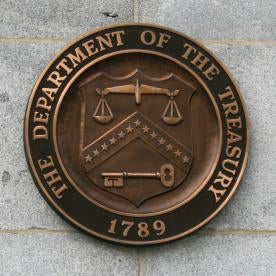A New York Times article earlier this week reported that top officials at the Treasury Department have identified a key area for strengthening data security – third-party service providers. Reuters reported that on Tuesday of this week New York State Department of Financial Services superintendent, Benjamin Lawsky, sent a letter to a number of banks inquiring about the
level of insight financial institutions have into the sufficiency of cybersecurity controls of their third-party service providers
In his letter, according to the Reuters report, Mr. Lawsky asked banks to provide “any policies and procedures governing relationships with third-party service providers.”
These actions follow the run of recent large-scale data breaches that have plagued many large U.S. companies, including those in the financial services sector. The exposure that vendors create is nothing new. For example, we discussed it in the context of the Massachusetts data security regulations and have seen similar concerns raised and instances of vendor breaches in other sectors such as education and healthcare.But the renewed attention now being paid to this exposure in the financial services sector may result in the need for more effort in this area for all businesses.
Of course, there are a number of laws and best practices that address vendor security. For example, HIPAA covered entities are already familiar with the “business associate agreements” they must have in place with many of their third-party service providers. A number of states, such as California, Massachusetts, Maryland and others, also require businesses that share residents’ personal information with third-party service providers to have a written agreement in place with each of those providers to safeguard that information.
What more could be coming?
That remains to be seen, but there are a number of steps businesses can take to enhance vendor privacy and security in addition to negotiating an agreement concerning data security. Some high-level examples include:
-
Including the vendor in your risk assessment process, and understanding what its risk assessment process involves.
-
Meet with your vendor’s IT lead, but also others in the vendor’s organization – legal, accounting, HR, sales, etc. This will give you a better sense of the culture of privacy and security at the vendor.
-
Review the vendor’s policies and procedures, including how often its employees are trained.
-
Require the vendor to submit to an independent data security audit/review.
-
Ask the vendor about its data breach response plan, and how often it is practiced. Include the vendor when you practice your own response plan.
-
Regularly reevaluate your vendor in this area, particularly when there are changes in technology, in your business, in the vendor’s business, and in the services received from the vendor.
This is not an exhaustive list, and each step could be fleshed out more or less depending on the risk the vendor presents. The point is that because of the critical role vendors play, and the information they have access to (which may include not just personal information but also company proprietary data), the measures taken to protect that data should be comparable.




 />i
/>i

